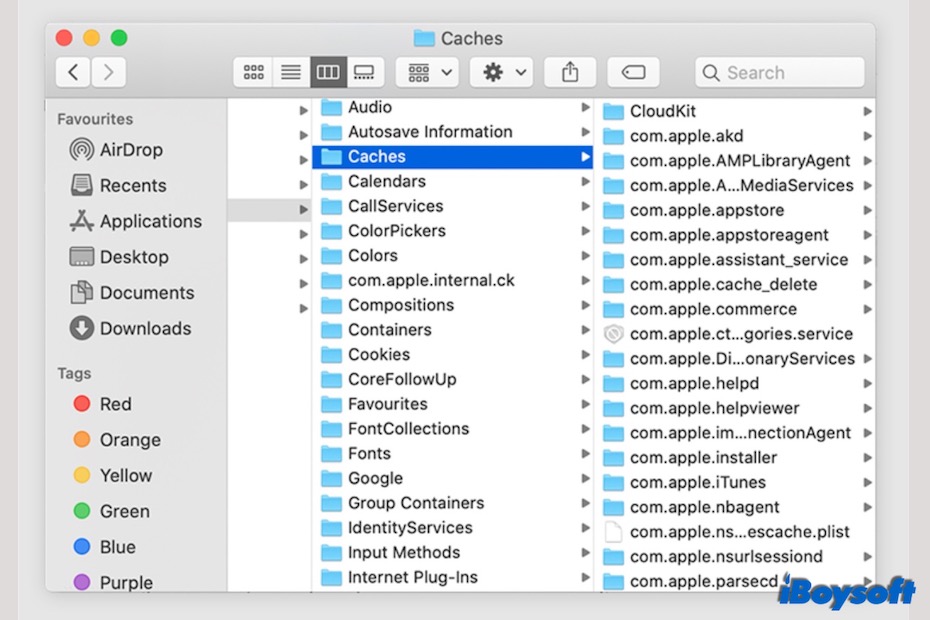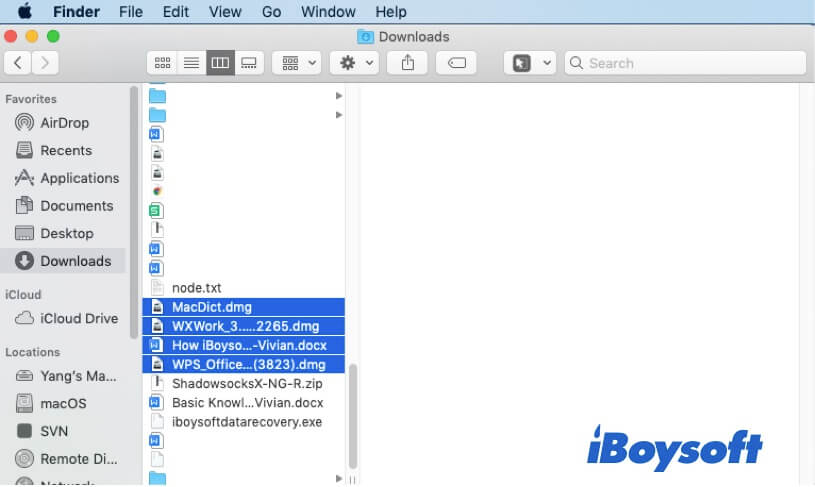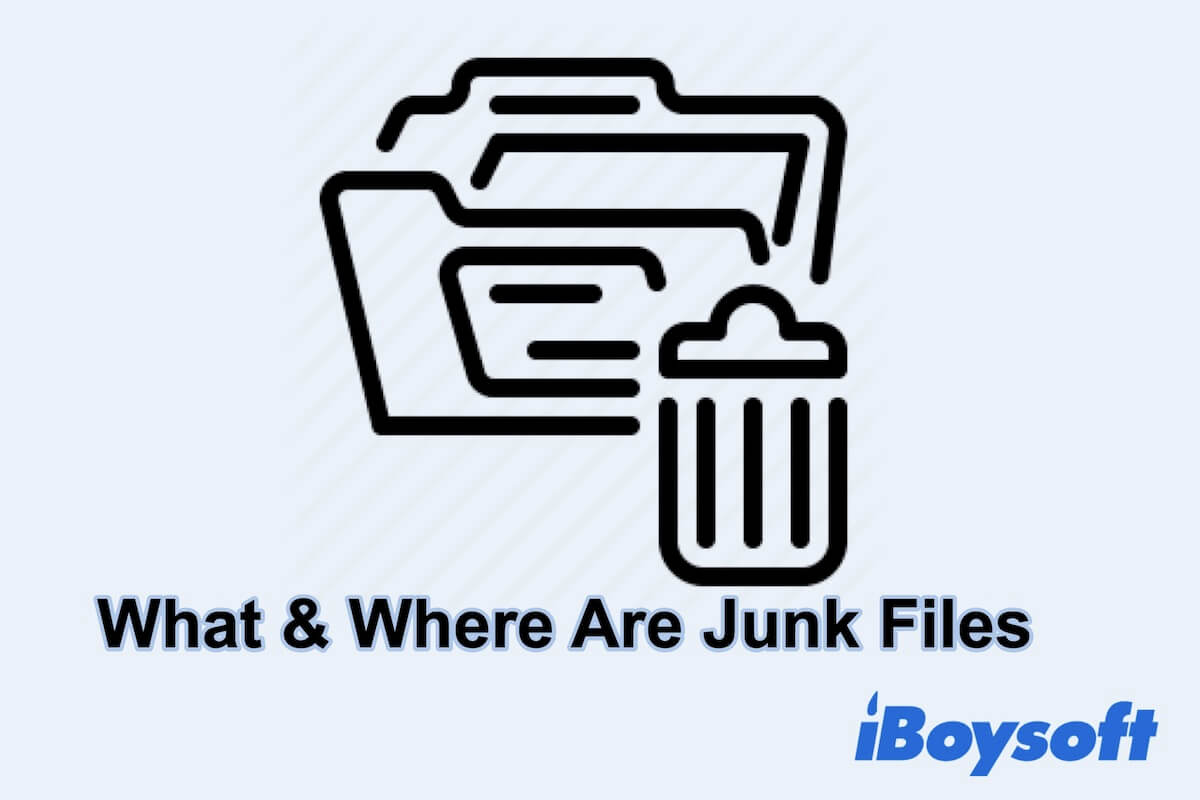The ubiquitous and hidden junk files on your device slow down your device or make it crashes frequently. If you have no idea what are junk files and where are they, this article will answer your questions and show you how to delete junk files from your computer in a safe and simple way.
What are junk files?
As the name shows, junk files are useless files on a device at the current time but did serve a purpose ever. They are temporary files created to enable the operating system of a device to perform a task. For example, if you open an app, preview an image, create a new document, or look through a folder on your computer, junk files are created.
Junk files are inevitable and start to be created from the time you turn on your device, like a computer or phone. If you ignore the accumulated junk files for a long time, they will make your PC or Mac runs slowly or even freeze as they eat your storage space secretly.
Examples of junk files on your computer
Junk files are of different types. You use your computer to do different tasks and run diverse programs on your device, creating different kinds of junk files.
So, how do you identify the junk data on a PC or Mac? Here we've summarised the common types of junk files and given you corresponding examples.
System caches. They are also called temporary system files. System caches are used to load the core extensions of your operating system for a stable and quick startup, identify the accuracy of the user information, or ensure other essential functions of the computer work. They are outdated once their job ends.

App installers. Usually, after an app installation, the downloaded app installer (the DMG file or PKG file) is no longer useful and can be considered a junk file.
Browsing data. The browsing history, cookies, and other site data are left even if you've closed the browser tab. They are saved in your browser folder to make your next visit quick on the same page. In addition to that, they are useless but may lead to your browser like Mac Safari not working.
Files in Trash or Recycle bin. The files moved to the Trash bin are meaningless for you. They still occupy your storage space as they are actually stored in the Trash folder on your computer.

Duplicated files. You may mistakenly save some duplicated files on your computer. They are just a copy of the original file and redundant.
Leftovers of deleted apps. Every app has a folder to store the setting data and other files. Sometimes, the preferences folder of a deleted program still stays on your computer and takes up the disk space.
Apart from the mentioned types, many other files can be divided into the junk file category. In some users' eyes, once the data is useless but occupies storage space on their computers, it is a junk file.
Is it safe to delete junk files?
Yes, it is safe to delete junk files. Once you fulfill certain tasks with some files and think that you won't need them anymore, you can go ahead to delete them. Especially those files can be automatically recreated when you proceed with a task again.
And there is no concern about flushing the macOS DNS cache files, leftovers of deleted apps, duplicate files, etc. They won't play a role in your later work. That's because they ever and never will be meaningful.
But for some specific files, they can be regarded as junk files at the current time but may be useful for you in the future. For example, the browsing history of a webpage can help your second visit if you forgot its URL.
And you can always recover deleted files on Mac or PC if you need them someday. So, be free and relax to delete junk files to boost your computer performance.
Where are your junk files?
The junk files are scattered on your device and are of different kinds, how do you find them? You can find out the files in every category and judge if they are junk.
To find the junk files, you need to:
- Open your downloads folder to check if there are useless download files and useless app installers.
- Open the system folder or library folder to check leftovers of deleted apps and broken app settings.
- Launch the Trash or Recycle bin of your computer to check the deleted files.
- Go to all the browsers on your device to check the history and cookies they saved.

However, there are many other junk files hidden on your device that are difficult to find out. It is complex and time-wasting for you to accurately find all junk files on your computer or phone. Thus, a professional junk file cleaner is required to help you scan and clean up the junk files.
How can you clean up junk files on your Mac computer?
Finding the ubiquitous junk files on your computer is not an easy job let alone cleaning them up one by one. But if you want to remove junk files by yourself, you can delete them by category.
• How to clear cookies on Mac?
• How to clear the cache on Mac?
• How to delete duplicates on Mac?
• How to delete downloads on Mac?

Notably, cleaning up junk files by hand may make mistakes and lead to data loss. So, be careful when removing junk files.
Alternatively, you can choose a junk file cleaner to help you do this complicated job. iBoysoft Diskgeeker is such a powerful junk file cleaning tool that can help you remove user cache, user log, Trash files, useless emails, unwanted downloads, and other junk files within one click.
FAQ about junk files
- Q1. Can I stop junk files from coming back?
-
A
No, junk files are inevitable. They are automatically produced when you run your computer or phone. But junk files are not as awful as viruses. They just take up your storage space and to some extent, slow down your machine.
- Q2. Why you need to delete junk files?
-
A
If too many junk files are stored on your computer or phone, your Mac will run slower and slower with time goes by.
